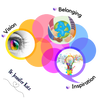Workshops and Seminars
A NOTE ON WORKING WITH ME
I rarely provide one-off (i.e. one day) workshops with no follow-up to schools or school districts. One day workshops do not result in changes in practice or sustainable implementation. It is mercenary - I am taking your money and not actually serving you, the teachers, or the students in your care.
If you wish to work with me, I want to be able to truly support you, and learn and grow together. This means we will need a plan over time that builds capacity and is sustainable in enacting change. There are many ways to do this, and I can provide suggestions, but we can also be creative and figure out what works for you.
A one day workshop is fine as a kick off intended to inspire educators to want to know more, or in a conference setting where multiple presenters are sharing information on specific aspects of practice. I am willing to participate in one day sessions for these purposes. However, to implement change at the district or school level, more is required.
If you wish to work with me, I want to be able to truly support you, and learn and grow together. This means we will need a plan over time that builds capacity and is sustainable in enacting change. There are many ways to do this, and I can provide suggestions, but we can also be creative and figure out what works for you.
A one day workshop is fine as a kick off intended to inspire educators to want to know more, or in a conference setting where multiple presenters are sharing information on specific aspects of practice. I am willing to participate in one day sessions for these purposes. However, to implement change at the district or school level, more is required.
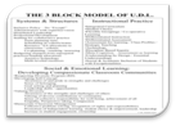
Introduction to the Three-Block Model of UDL
This two-day series focuses on the practical “how to” of setting up your classroom in a way that supports diverse learners and their teachers! A practical, 5 step process for planning, instruction, and assessment of inclusive classrooms that integrates evidenced based practices (e.g. Differentiating instruction, UBD, inquiry) into one simple method is outlined. Sample units, lessons, rubrics, and video, will be shared!
This two-day series focuses on the practical “how to” of setting up your classroom in a way that supports diverse learners and their teachers! A practical, 5 step process for planning, instruction, and assessment of inclusive classrooms that integrates evidenced based practices (e.g. Differentiating instruction, UBD, inquiry) into one simple method is outlined. Sample units, lessons, rubrics, and video, will be shared!
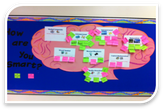
Social & Emotional Learning in the Inclusive Classroom
This workshop focuses on building classroom climate and school-based social and emotional skills, including developing students’ sense of self-worth in the school setting, and belonging / connectedness to others. Strategies for supporting students' developing identity as a learner and person, social skills and understandings related to interpersonal connection, and ability to work collaboratively with others will be shared.
This workshop focuses on building classroom climate and school-based social and emotional skills, including developing students’ sense of self-worth in the school setting, and belonging / connectedness to others. Strategies for supporting students' developing identity as a learner and person, social skills and understandings related to interpersonal connection, and ability to work collaboratively with others will be shared.
Mental Health for Students & Teachers - Creating Trauma Informed Classrooms & Schools
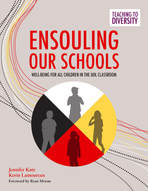
The Three-Block Model promotes social and emotional learning programs to create compassionate learning communities. Trauma informed schools and classrooms, in response to the TRC, have become a focus across Canada. Building a sense of safety, trust and belonging, emotional resilience and regulation, mental flexibility, and coping skills serves everyone. In this workshop, we will share strategies drawn from Indigenous models of healing and well-being, SEL, cognitive behavior therapy, dialectical behavior therapy, and mindfulness that can support both educators and students to manage emotional stress and critical incidents.
|
UDL & The New BC Curriculum: A Perfect Fit
This workshop focuses on the practical “how to” of implementing the new BC curriculum through the lens of UDL. The Three-Block Model has always emphasized the combination of social and academic inclusion and designing learning environments that support diverse learners well-being and learning, in keeping with the competencies of the new curriculum. |
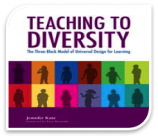
Deeper Learning: Developing Critical Thinking
The Three-Block Model has been shown to significantly increase the depth of learning and thinking across curricula for students K-12. Combining integrated curricula, essential understandings/big ideas, inquiry, and rubrics based on Bloom’s taxonomy creates learning environments that emphasize making connections, synthesis, analysis, inferencing, and creativity. Videos, lessons, and assessment measures will be shared, and time will be given for planning.
The Three-Block Model has been shown to significantly increase the depth of learning and thinking across curricula for students K-12. Combining integrated curricula, essential understandings/big ideas, inquiry, and rubrics based on Bloom’s taxonomy creates learning environments that emphasize making connections, synthesis, analysis, inferencing, and creativity. Videos, lessons, and assessment measures will be shared, and time will be given for planning.
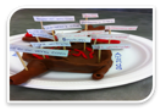
Assessing Diverse Learners
In this workshop, participants will work with student samples to develop an understanding of competency based, deeper learning assessment for diverse learners- utilizing diverse products ranging from dialogue, role plays, and written pieces to visual, musical, and multi-media representations. Sample rubrics and curricular material across grade levels will be shared.
In this workshop, participants will work with student samples to develop an understanding of competency based, deeper learning assessment for diverse learners- utilizing diverse products ranging from dialogue, role plays, and written pieces to visual, musical, and multi-media representations. Sample rubrics and curricular material across grade levels will be shared.
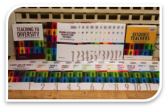
Literacy & Numeracy as Communication
This two-day session will focus on literacy and numeracy instruction for diverse learners. Participants will learn how to develop goals and universally design instruction that will help diverse learners to think deeply and profoundly about literature, multi-media text, and mathematical concepts. Cases, sample lessons, and student work samples will be shared from K-12
This two-day session will focus on literacy and numeracy instruction for diverse learners. Participants will learn how to develop goals and universally design instruction that will help diverse learners to think deeply and profoundly about literature, multi-media text, and mathematical concepts. Cases, sample lessons, and student work samples will be shared from K-12
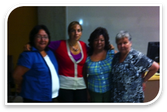
Three-Block Model of UDL & FNMI/Aboriginal Education
In this circle, the Three-Block Model of UDL will be overviewed, with direct connections to strategies teachers can use to include Aboriginal content, culture, and instructional practices that will benefit Aboriginal and Non-Aboriginal students alike. Collaborative work with elders will be shared.
In this circle, the Three-Block Model of UDL will be overviewed, with direct connections to strategies teachers can use to include Aboriginal content, culture, and instructional practices that will benefit Aboriginal and Non-Aboriginal students alike. Collaborative work with elders will be shared.
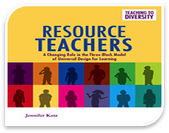
UDL & RTI: Universally Designed Tier II & III Instruction
This session integrates an RTI and UDL perspective to understanding service delivery and the role of the various people involved in a child’s educational planning and then focuses in detail on how tier two and three supports for students with disabilities are provided in a universally designed learning community from K-12. A second day can focus on creating change, coaching, and consulting. Sample IEP’s and case studies will be shared in an effort to provide a framework for IEP development, service
delivery, and collegial coaching.
This session integrates an RTI and UDL perspective to understanding service delivery and the role of the various people involved in a child’s educational planning and then focuses in detail on how tier two and three supports for students with disabilities are provided in a universally designed learning community from K-12. A second day can focus on creating change, coaching, and consulting. Sample IEP’s and case studies will be shared in an effort to provide a framework for IEP development, service
delivery, and collegial coaching.
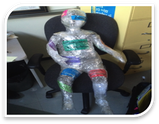
Including Students Who Are Gifted
While UDL is inherently noncategorical, the national reduction in services to this at-risk population requires that awareness and capacity is raised related to the needs of gifted learners. Common myth holds that they are “smart” and therefore “will be fine”, but statistics related to mental health, social skills, substance abuse, and adolescent suicide say otherwise. In this workshop, teachers will learn what to
look for to identify gifted learners, and how to program in ways that support their social, emotional, and
academic development.
While UDL is inherently noncategorical, the national reduction in services to this at-risk population requires that awareness and capacity is raised related to the needs of gifted learners. Common myth holds that they are “smart” and therefore “will be fine”, but statistics related to mental health, social skills, substance abuse, and adolescent suicide say otherwise. In this workshop, teachers will learn what to
look for to identify gifted learners, and how to program in ways that support their social, emotional, and
academic development.
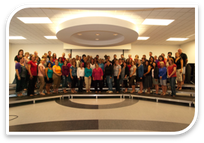
Ensouling Our Schools: Building Safe & Caring Schools for School Staffs
Learning is a Team Sport – and so is teaching!
Teacher retention is as big an issue as student retention is. We don’t help students by burning out teachers, support staff, or school leaders. Social and academic inclusion…Self-worth, belonging, cognitive challenge, and interactive learning opportunities are as critical for adults as for youth, and students are affected by the relationships of the adults in their world. This seminar focuses on strategies for building school teams and community, supporting mental health and well-being for staff, and developing capacity for resilience, mindfulness, & change.
Learning is a Team Sport – and so is teaching!
Teacher retention is as big an issue as student retention is. We don’t help students by burning out teachers, support staff, or school leaders. Social and academic inclusion…Self-worth, belonging, cognitive challenge, and interactive learning opportunities are as critical for adults as for youth, and students are affected by the relationships of the adults in their world. This seminar focuses on strategies for building school teams and community, supporting mental health and well-being for staff, and developing capacity for resilience, mindfulness, & change.
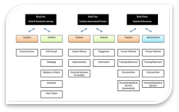
Leadership for Inclusion
This presentation focuses on block three of the model: Systems & Structures. Participants will be introduced to research related to student and teacher outcomes, as well as leadership practices that support sustainable implementation. Cases, video, and discussion will introduce examples of school districts, early, middle, and senior years schools and the processes they have followed, resources used, and challenges faced as they have sought to build capacity for inclusive education.
This presentation focuses on block three of the model: Systems & Structures. Participants will be introduced to research related to student and teacher outcomes, as well as leadership practices that support sustainable implementation. Cases, video, and discussion will introduce examples of school districts, early, middle, and senior years schools and the processes they have followed, resources used, and challenges faced as they have sought to build capacity for inclusive education.
